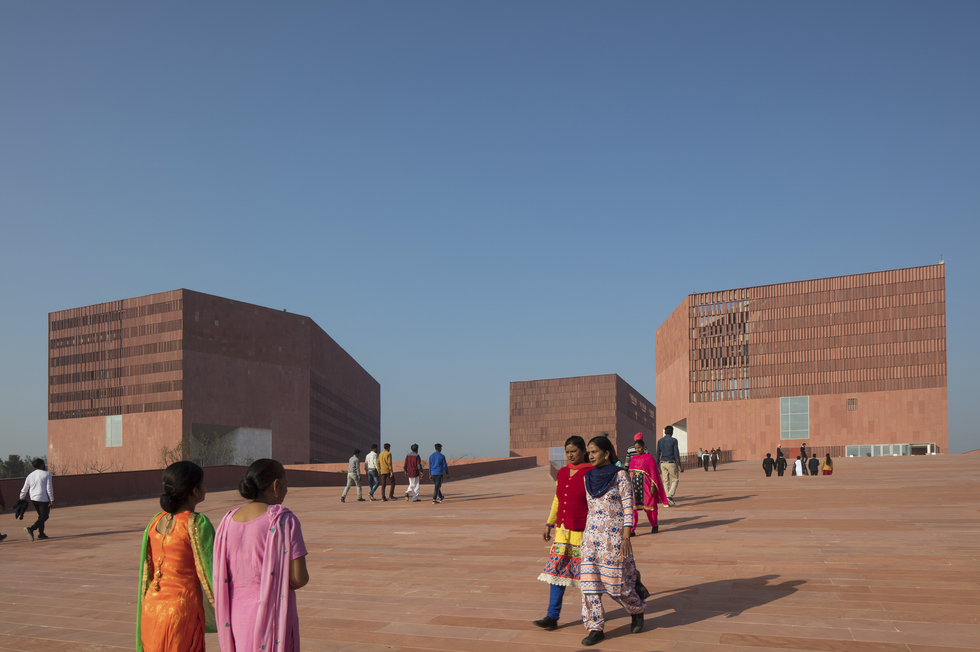Labour Migration: Legal does not necessarily mean safe

Labour migration from Vietnam to Germany is considered a model of success. How do you assess the situation?
Germany has been an important trading partner to Vietnam for many years, and there are strong relationships in development cooperation, too. In addition to these areas, labour migration is another pillar of cooperation. Germany benefits greatly from qualified Vietnamese workers, who relieve the pressure on and improve the German healthcare system, while Vietnamese migration is also relevant in the catering industry and in beauty salons. On the other hand, remittances from Vietnamese workers have accounted for an average of five percent of Vietnam’s gross domestic product (GDP) for years. The export of labour is a strategy of Vietnam’s government, which contributes to the overall economic stability and development of the country. Living and working abroad is extremely attractive for many people in Vietnam. In order to make this dream a reality, some are prepared to take huge risks, including the use of dubious smugglers and human traffickers. By creating official channels for labour migration, as laid down in the 2024 agreement on the basis of the Skilled Immigration Act, both governments are actively countering the business model of human trafficking.
Both countries have an interest in expanding legal channels of migration. What does this mean specifically for those who embark on migration?
Legal does not necessarily mean safe. Women and young people are particularly vulnerable and, despite the legal framework, are exposed to risks such as dependency on employers or gender-specific violence. At the same time, they often have only limited access to education, advisory and health services. Many boys and young men also leave Vietnam for Europe in the hope of economic success – and often with the help of smugglers. It is common for families to get into serious debt in order to raise the required amounts of money. Yet even if someone with a great deal of commitment (e.g. investments in the form of time and money for German courses) has managed to legally come to Germany, the migrant is under enormous pressure to succeed and send remittances back to their family. And even if a diaspora has been established in Germany for two more generations, they usually withhold the real hardships of life in Germany from those still living in Vietnam. Success abroad continues to be a status symbol. Migrants therefore avoid disclosing real difficulties so as to not burden their families. Young men between the ages of 20 and 30 in particular carry this burden, and often have no outlet for it. This makes them susceptible to negative influences such as drugs or gambling, which, in turn, can lead to addiction and debts to criminal networks. There is then a risk of becoming involved in precarious working conditions or illegal activities.
For German-Vietnamese migration relations, this means that it is not enough to create a legal framework for legal labour migration; it also needs to be ensured that embarking on these channels is safe in practice and that Vietnamese labour migrants will be treated fairly in Germany, as emphasised by Labour Minister Hubertus Heil during his visit to Vietnam in January 2024. As soon as they take up dependent employment in Germany, they have the same rights and obligations as German employees.
Prevention and the education of people at risk is particularly important when it comes to the fight against human trafficking. How can we achieve this?
It is crucial that Germany and Vietnam work together closely to open information offices in those provinces of Vietnam, which are considered the core regions of migration, in order to have a strong impact on the prevention of human trafficking. These provinces are Quang Ninh, Quang Binh, Ha Tinh, Nghe An and Hai Phong in north-central Vietnam. The regions have had a longstanding tradition of migration to Germany since the GDR’s contract labour agreements in the 1980s, given that life prospects and educational opportunities are very limited there.
Information centres in urban centres such as Hanoi or Ho-Chi-Minh City would be ineffective, as they would not reach the target groups concerned. These offices need to be directly established in the regions from which most migrants originate. We must not forget that official sources of information are initially in direct competition with well-organised networks of human trafficking. These criminal networks work with “recruiters”, who often make initial contact via the family or friends of potential victims and make unrealistic promises about income and living conditions in Europe. That’s why traditional information flyers fall short of the mark. The Federal Criminal Police Office provides a comprehensive analysis on how a complex conglomerate of various influencing factors affects (potential) victims of human trafficking, such as special trust in compatriots and strong financial responsibility towards the family. The pressure to quickly earn a lot of money abroad and to rely on familiar social support structures from the community is high. In order to be effective, the methods of communicating information need to take these social dynamics into account. Extensive educational and support programmes – also via social media – must be developed, which build trust in the affected regions.
What is the most important measure that should be taken in Germany so as to ensure that all sides, including the migrants themselves, benefit from migration?
Germany differs from other countries in Europe with large Vietnamese diaspora communities by the fact that Vietnamese people have already been living in Germany for several decades and have usually integrated well into most areas of society. There are specialists of Vietnamese origin employed in social work, the police and in non-governmental organisations as well as German-Vietnamese cultural associations. What is more, many Vietnamese-German employers, especially in the hotel and catering industry, support the integration of Vietnamese trainees and labour migrants into German society. Of course, this is easier in large cities with existing ‘Vietnamese infrastructure’, such as Asian supermarkets, restaurants and communities than is the case in rural areas. The German government should recognise and support these efforts.
We often speak about Vietnamese labour migrants in light of their economic benefits. However, it is just as important to recognise that many of these young people are not only motivated for economic reasons, but are also interested in a new country, its people and culture. Similar to many Germans who want to gain experience abroad after their training or university, young Vietnamese should have the opportunity to do so in Germany or another country without exploitation and danger. Some return to Vietnam after a few years, while others stay permanently. Yet all of them have the potential to contribute towards building long-term, strong and meaningful economic and cultural ties between Germany and Vietnam.
The interview was conducted by Annette Schlicht.
About

Dr Dorothea Czarnecki is a social scientist who has been working internationally against human trafficking and the sexual exploitation of children for 20 years. She has worked for UNICEF Vietnam and supports law enforcement agencies and the media with background information on Vietnamese human trafficking to Europe. Dr Czarnecki is an IT analyst and Head of Child Protection/Human Trafficking at the expert office FORENSIK.IT GmbH in Berlin.
The opinions and statements of the guest author expressed in the article do not necessarily reflect the position of the Friedrich-Ebert-Stiftung.

